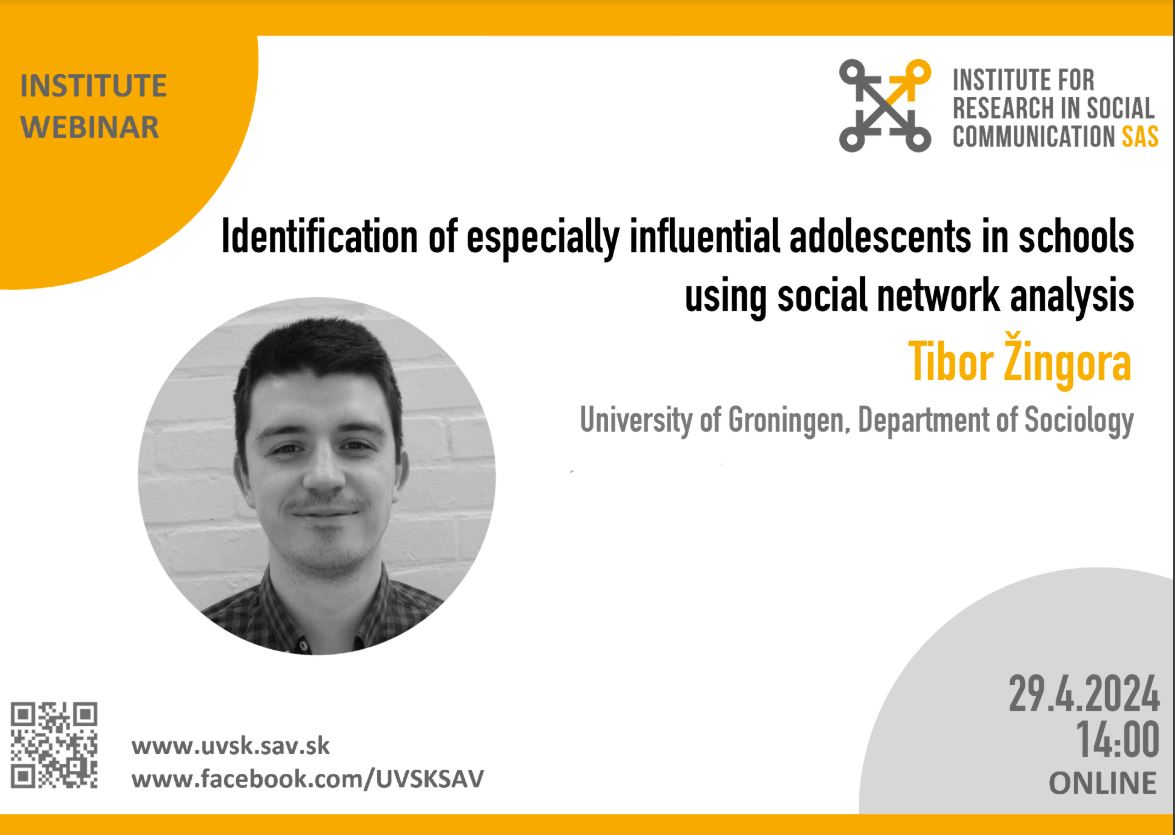Srdečne Vás pozývame na ústavný seminár s názvom „Identification of especially influential adolescents in schools using social network analysis“, kde bude naším hosťom Tibor Žingora z oddelenia sociológie Univerzity v Groningene. Seminár bude v anglickom jazyku. Prosíme Vás o sprostredkovanie tejto informácie aj vašim kolegom a kolegyniam. Seminár sa uskutoční online formou.
V prípade záujmu o účasť, prosíme vyplňte jednoduchý formulár:
https://docs.google.com/forms/d/e/1FAIpQLSd0U3hJ65QONW0gTCkRcJ6UvspXkKUUQSCGQrW1641S1rQFiA/viewform?fbclid=IwAR3b8YlgUMi8CZ1OdkKHURrxa-zh9173BSZl250xgWRsaML6Fzf9O–iMT0
Najneskôr v deň konania semináru Vám budú zaslané prístupové údaje k online stretnutiu. Maximálny počet účastníkov a účastníčok mimo ÚVSK SAV je 50 ľudí.
Udalosť na facebooku:
https://fb.me/e/7650p6KE0
Tešíme sa na stretnutie!
Identification of especially influential adolescents in schools using social network analysis
Tibor Žingora, University of Groningen
Pondelok, 29.4.2024, 14:00, online
Abstract: Adolescence is a critical stage in the development of attitudes and behaviors, and peers play a crucial role in it. I will present a project in which we aim to identify the most influential adolescents in schools who could spread attitudes and behaviors among their peers. In a series of studies, we (1) distinguished and contrasted different forms of peer influence; (2) investigated different mechanisms underlying social influence; and (3) examined whether a potential indicator of social influence identified individuals who were especially effective in spreading attitudes and behaviors. Social influence in schools is a complex process that can be addressed with network science, such as stochastic actor-oriented modeling. We conducted an empirical investigation of our models, which were subsequently used in empirically anchored agent-based simulations. In simulations, adolescents who were popular in terms of being frequently selected as friends were particularly effective in spreading attitudes and behaviors in their schools. These adolescents are preliminarily considered ideal candidates to be targeted in school interventions.







